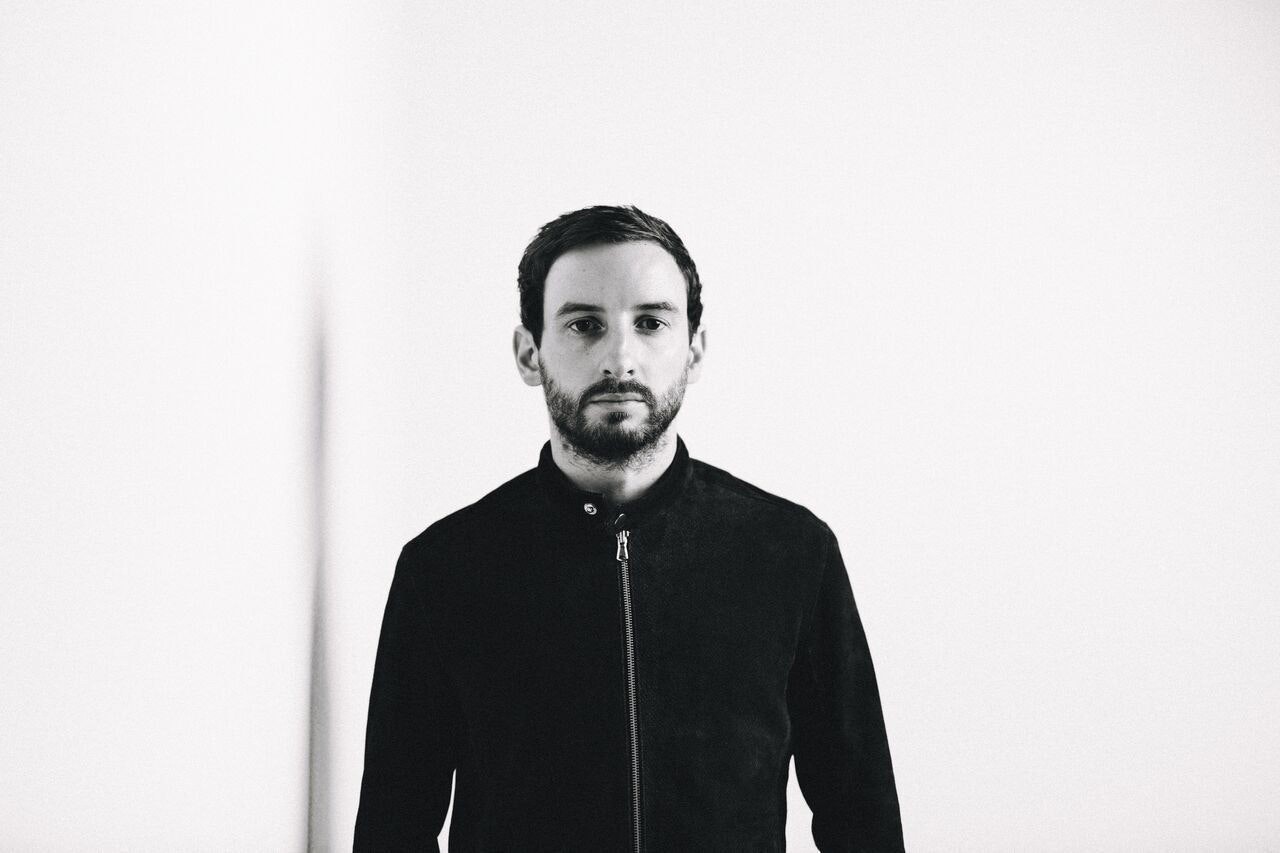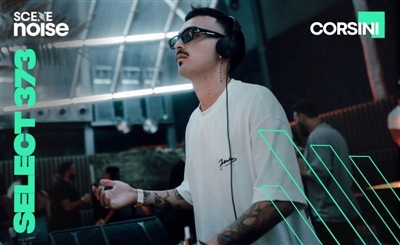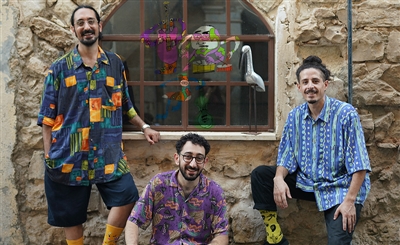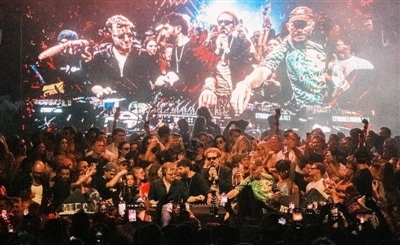Noise 101: Max Cooper
In a CairoScene exclusive, we speak to the geneticist turned producer who's engineering scintillating soundscapes, having switched his lab for a studio but experimenting nonetheless...

Recently, no one has quite made our ears purr like the fearless impact Max Cooper conjures up, creating coarse melodies out of acute, industrial sounds that suck you in to a vortex then diffuse and spread out onto another plain all together. The mesmerising detail of a Cooper drum-pattern is akin to a microscopic lab experiment, which seems like a logical expression seeing as the London-based producer used to be a full time geneticist. Without formal musical training, Cooper ditched DNA for an APC, gaining fast recognition following the release of Serie, three dance floor tracks whose related videos by animator Whiskas Fx were each inspired by a different scientific or mathematical concept and a host of remixes for the likes of Michael Nyman, Hot-Chip, and Agoria. And then there was the stunning audio visual collaboration with composer and pianist Tom Hodge for the Fragments of Self EP in 2013.
He released his debut album Human in March this year and it seals a beautiful symbiosis between science and art, not just in its application (Cooper sampled sounds by putting images of his body parts through an audio spectrograph) but its result, taking you through a very emotive, personal journey with grinding cognitive beats. Highlights include the tear-jerking vocals of Katherin DeBoer bleeding through introspective noises flickering around every inch of the sound spectrum in Adrift, the playful bass line in Supine and the ruthless ferocity of Impacts.
We caught up with Cooper to talk technique and transcendence...
So where are you right now; can you describe the setting?
I’m in my little studio in North London, if I stretch my head I can see across a little valley to Alexandra Palace, where the first ever live television broadcast was made from in the early days of the BBC, or some story to that extent. It’s fallen into disrepair in recent decades, but it’s still a beautiful view. Nice views help my writing process, I think my music would suffer with one of the standard dingy underground-hole studios a lot of people have.
Do you think having no formal background in music has been a benefit or a hindrance?
I’ll never know where I would be in a parallel universe where I had pursued music as an academic choice instead of science. But perhaps I’ve benefitted from expressing what I want without the associated baggage of accepted academic norms. Or for some people that lack of conforming may be a negative impact. Music is subjective so it’s very hard to put a general quality assessment on it – if you like my music, it worked, if not, it didn’t – from your point of view!
How has your research into genetics affected your musical styling?
I think my musical styling comes from my wider personality, so the genetics background is only a small factor of that. But I think it did have a noticeable impact on my learning and production process – doing research teaches you how to apply yourself to any field in a persistent and directed manner in order to get results. I think it has also affected my constant attempts to experiment musically and try new things – sometimes they work, sometimes they don’t, but I’m not happy if I’m not at least trying to do something new.
What's the trigger for any one track? Is it trial an error in the studio or do you start off with a certain emotion in mind that you want to transcend?
I always have some form of concept to work towards. This can be something abstract like a picture in my head, an objective concept like Automaton or Woven Ancestry from my album, a feeling to try and turn into musical form, or simply a production process idea or experiment to try out. Generally the production processes and experiments in making sound in new ways form a separate part of my work, which builds a library of options – this stuff often takes a long time and a lot of fiddling, which isn’t a good thing when you’re trying to catch a fleeting feeling and turn it into music. So things work best when the technical process and more abstracted musical message parts are split into separate jobs. If I’m feeling inspired I need to get it down in musical form somehow, if I’m not then it’s a good time to try and learn something new and fiddle with techniques.

There's a focused chaos in your Techno-esque drum patterns and beats that's very distinctive to you. Was this always a case since you started producing and where do you think that influence came from?
I’ve always loved detail and complexity in music, going back to first hearing people like Autechre, Aphex Twin, Squarepusher and Venetian Snares in the 90s. But I was also always frustrated with the fact that most of this rich music was also usually so obtuse – I didn’t think it had to be, so a central aesthetic of mine has always been to try and bring in rich, seething detail, but presented in a more simple flowing format – complexity presented as simplicity, almost so you can listen to the tracks either way….bang in the club, or paying attention on your headphones. It started off with lots of little samples and edits in my early tracks, and has developed into a little more of a generatively-driven process whereby I’m using a lot of randomisation combined with careful constraint to try and achieve the same aim. I’ve still got a long way to go on this though, people like Rob Clouth take this to a far superior standard than I’ve managed to get to so far.
Who were you listening to most in the lead up to making Human?
Voices from the Lake, Lusine, Bjork, Nils Frahm, Fuck Buttons, Jon Hopkins, Olafur Arnalds, Metro Area, Apparat, Pink Floyd, Vaetxh, Rob Clouth, Helios.
Human starts off with more earthy connotations, emotions and frustrations and gradually leads to a more ethereal feel leading up to Empyrean and finally Awakening. Is this a reflection of your own, or mans evolution in consciousness?
The album was structured to give a flow from easily heard tracks to intensity and then the surreal, so yes, it could be described as going from more every day human thoughts towards more ethereal – that’s an interesting observation that I hadn’t thought of before. When I was structuring the album I was thinking about the musical flow, but of course the music is tied to the concepts so the conceptual flow followed the same pattern.
Where do you find the balance between the mechanics of making a crowd dance and making something that moves you personally? Do you feel the latter generally interludes into the former?
I usually get bored listening to music in clubs pretty quickly. If there is something else going on musically, other than just the danceable rhythms, it works better for me personally, so that’s what I apply to my productions. But yes, trying to convey too much meaning can detract from the club/dance impact. No doubt I often stray over that line with my productions, but I’m quite aware of that when I’m playing in clubs, a lot of my tracks can only be played in very specific circumstances, or in short doses.
Where and when is the best place to listen to Human?
Probably on a high-fidelity system at a home afterparty with lots of cushions. Or in a peaceful environment with a nice pair of headphones.
What's the best advice you could give to budding producers?
Work harder than everyone else, and try to find a way of putting a little bit of yourself into your music.
Human is available for purchase on iTunes here. Keep up to date with Max Cooper on his fanpage here
- Previous Article Getting Abyusif
- Next Article DGTL: Much More than a Music Festival






















